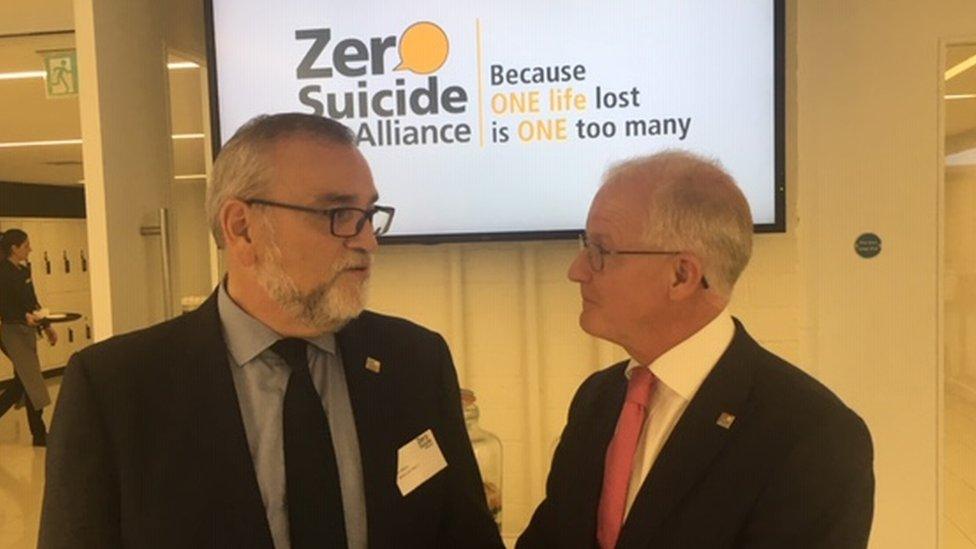New Year’s Honours: Suicide prevention campaigner appointed CBE
- Published

Joe Rafferty (left) with Steve Mallen, whose son killed himself
An NHS boss praised for being a "consistent champion" of suicide prevention has been recognised in the New Year's Honours List.
Joe Rafferty, who becomes a CBE, helped Mersey Care NHS become the first mental health trust in England to publicly commit to a "zero suicide" policy.
The chief executive co-formed the Zero Suicide Alliance in 2017, inspired by work done in the United States.
Mr Rafferty, 57, said "you're only ever as good as the team you work with".
Free training
Trust chair Beatrice Fraenkel said: "He's been a consistent champion for improved suicide prevention resources and care in this country and, in particular, the concept that even one life lost is one too many. This achievement is absolutely deserved."
Mr Rafferty, Mersey Care's chief executive for seven years, co-formed the Zero Suicide Alliance (ZSA) in 2017.
A collaboration between NHS trusts and other organisations, it provides a range of free training.
More than 400,000 people have benefitted from it, an NHS spokesperson said.
The ZSA's approach is inspired by the Henry Ford Hospital System in Detroit, which has dramatically reduced suicide numbers.
In 2018, external, there were 6,507 suicides registered in the UK, three quarters of whom were men.
'No blame or criticism'
Mersey Care's plan involves a suicide risk assessment of every patient who comes into contact with trust services.
Trust directors carry out post-suicide reviews within 72 hours to learn what changes might be required. While there is a promise of "no blame or criticism", staff are required to co-operate.
Mr Rafferty said: "There's clear evidence that people's perceptions change about suicide... and there's now over 400,000 people in the UK and beyond who no longer believe suicide is inevitable, which has to be a great step forward for us as a society.
"This is also recognition for the restorative practice we've introduced after a suicide, which enables compassionate responses to bereaved relatives, friends and loved ones and provides rapid learning for service providers to improve."
- Published17 November 2017
- Published9 May 2019